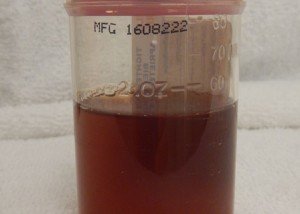
Cloudy urine may be a sign that something is wrong, including kidney damage from diabetes.
“Before we had fancy tests to check for glucose levels in the blood, doctors examined the urine,” says Walter Gaman, MD, FABFM, board certified in family medicine and the author of several award-winning books including “Age to Perfection: How to Thrive to 100, Happy, Healthy, and Wise.”
“Believe it or not, they would actually smell or taste it to see if it was sweet,” continues Dr. Gaman, who is board certified in family medicine.
“Luckily, doctors no longer have to subject themselves to that, but urine still offers insight into diabetes. First and foremost, increased urination, called polyuria, can be a sign of diabetes.
“This happens because the kidneys have to work extra hard to rid the body of excess glucose (sugar).
“A diabetic’s urine often smells sweet, so if you notice you are urinating frequently and it smells sweet, it may mean you are developing diabetes, so be sure to mention these symptoms to your healthcare provider.
“While cloudy urine can be a result of kidney damage from diabetes, it is not necessarily a sign you have diabetes.”
Untreated diabetes harms the kidneys because the sugar buildup in the renal blood vessels damages them.
If you have diabetes and notice cloudy urine soon after eating, the fogginess is not caused by anything you ate or the digestive process.
It’s just a coincidence. Eating, digesting and food ingredients do not make urine appear murky or hazy.
However, certain foods can color your pee pink or reddish. And carrots (and dehydration) can make it orange.
“Most cloudy urine is due to dehydration, a urinary tract infection, a sexually transmitted disease or even kidney stones,” says Dr. Gaman.
In addition, occasionally your pee may appear a little murky (but still see-through) due to natural sedimentation. This is nothing to worry about and is not a true “cloudy” quality.
“Cloudy urine is a sign that something is wrong, so if it’s not corrected after an increase in water intake, be sure to visit your healthcare provider. A simple urinalysis may provide the answer.”

Dr. Gaman is with Executive Medicine of Texas and is with the Staying Young Radio Show 2.0 podcast.
 Lorra Garrick has been covering medical, fitness and cybersecurity topics for many years, having written thousands of articles for print magazines and websites, including as a ghostwriter. She’s also a former ACE-certified personal trainer.
Lorra Garrick has been covering medical, fitness and cybersecurity topics for many years, having written thousands of articles for print magazines and websites, including as a ghostwriter. She’s also a former ACE-certified personal trainer.
.









































